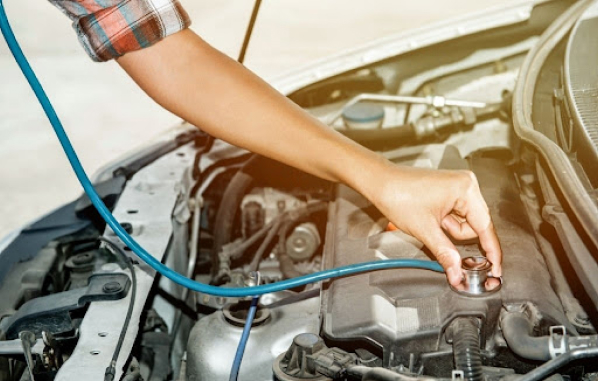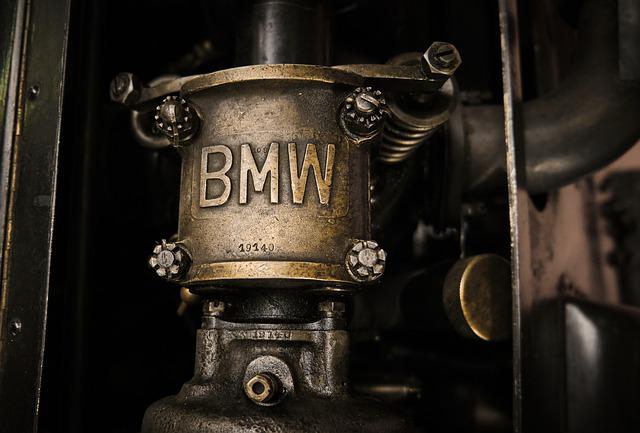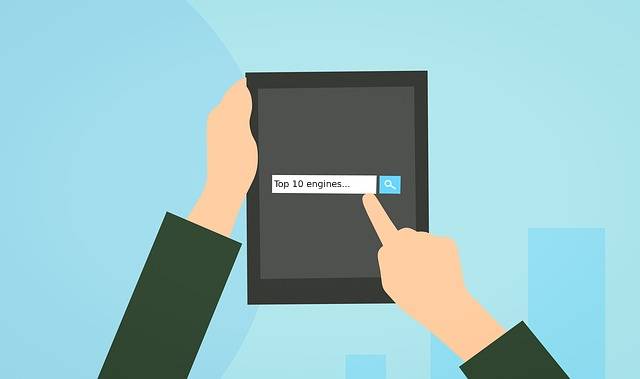What are the symptoms of a failing oil pump of a car engine?
Find Used Engines and Transmissions for a Great Price! Live Assistant For Used Engines Call 1800-518-9776

You know something is wrong with your car and you are experiencing issues with your vehicle. Sometimes, it is not easy to identify the issues, chiefly because such issues are out of sight- like the oil pump. This is why you are here. As a fact, we know that an oil pump is a constitutive part of your car’s engine performance.
Pump oil is responsible for circulating the oil to all the moving parts of the engine. The moving parts of your engine stop functioning properly if the oil pump fails. So, oil pump failure is a serious problem and it is important to recognize the malfunctions of a failing oil pump. In this article, let us discuss some of the most common symptoms of a failing oil pump of your car’s engine.
Read more about winter car problems and tips
Common bad oil pump symptoms
Typically, you’ll discover these four main signs that you must consider to fix or go for an oil pump replacement. They are mostly- low oil pressure, overheated engine, strange noise, and an activated limp mode. If you are experiencing poor vehicle performance, because of these symptoms, you mustn’t ignore them. Have a look at the symptoms of a failing oil pump in detail before you get your car to the workshop for a fixture or an oil pump replacement.
Low oil pressure
The oil pump maintains the right oil pressure, and this pressure pushes the oil in the engine to keep it moving. The friction between the parts increases, when the oil does not move with the right pressure.
An oil pump that is bad will lose its ability to pump the oil through the system of your car accurately. If you feel the engine is heavy, the car stops frequently, or the power is low, it's because of the drop in oil pressure, note that it is the primary sign of the problem of the failing oil pump.
Consequently, this will lead to low oil pressure and is surely one of the symptoms of a failing oil pump. You will likely know about the same when you see an oil pressure warning light or an indicator. You sure don't want to tow your car in the workshop. So, compromising with a bad oil pump symptoms shouldn’t be considered. It puts the entire engine at risk.
To avoid the damage, consider troubleshooting the oil pump at home or you will only be left to tow the car to a workshop. You can also consider adding oil yourself but make sure to refer to your engine’s manufacturer's manual to follow the steps.
Increase in engine operating temperature
Another symptom of a failing oil pump is an overheated engine.
Oil helps in lubrication, reducing the friction on the parts. This helps in maintaining the temperature when the vehicle is in use.
With the reduced engine oil, the parts don’t remain properly greased up. The heating of the engine is increased as a result. Increased friction and increased temperatures, will lead to more serious issues and plausibly an oil pump replacement.
The excessive heat from the engine will engulf the cooling capacity of the system. Thus, if you have a faulty or failing oil pump, an increase in the engine’s operating temperature could be one of the few symptoms that you are likely to notice.
Subsequently, the temperature of the engine will rise beyond normal. You might be alerted about this abnormal increase in temperatures, as the heat light will light up on your dashboard.
To keep yourself away from the tremendous harm of the engine, it is recommended to get this issue addressed in time. Turn off the engine as soon as possible, and continue your drive only after the engine cools down.
Unusual Noise
Unusual engine noises also point towards a faulty engine and subsequently could be a problem of a failing oil pump, as it causes a chain reaction. Thus, apart from overheating, due to unavoidable wear and tear of the parts of the car, you are likely to hear these unusual noises. The noises could be from different parts
1. Hydraulic lifter noise
Hydraulic lifters are key parts of your car’s engine operation. These lifters are silent when the engine works well, however, they start to make noise when the flow of the oil is disrupted. Now, you know the connection - It’s a symptom of a failing oil pump of a car engine. Make sure they are sufficiently lubricated. It’s only the best idea as going for hydraulic lift replacement will cost you too much.
2. Noise from the valve-train system
The moving parts of the engine will experience a lack of lubrication as a result of reduced oil pressure. As the engine continues to operate, the metal parts of the system (including the pushrods, the seals, and valve guides) will rub against each other, and cause considerable big-budget damage. So, you’ll hear noises from the valve-train system because the parts will start to grind against each other noisily. Immediately, shut your car off and get to the workshop.
3. Noise at the oil pump
A problematic oil pump will definitely make noise. You’ll have to look for it and most of the drivers do not notice this noise. If you hear noises coming directly from the oil pump while you are inspecting your engine compartment, it's definitely a bad pump oil symptom. Even when the car is idling, you’re likely to hear whirring or whining sounds. It’s a major concern since the oil pump isn’t supposed to be making any sounds. Troubleshoot or go for oil pump replacement, if needed.
4. Noise from Engine Bay
If you experience noise from the engine bay, it could be a bad oil pump symptom too. When the gears in the pump oil start to wear out, they do not connect together smoothly, which causes the most common type of noise, which is the whining noise. You might also hear a grinding noise. This is usually the result of debris or metal shavings that might get caught in the oil pump. This is why it is necessary to resolve this issue and it is highly advisable to have your engine checked immediately.
Limp Mode Activated
Besides the above-discussed symptoms of a bad oil pump, the limp mode is one of them. In modern cars, it is a safety feature, which detects if the engine has a problem or not. Your car will reduce the amount of power that it produces when this mode is activated. This activation prevents any additional damage to the engine. With a failed oil pump, the engine will not receive sufficient oil, causing damage to the components of the engine. You should pull over, and quickly turn off the engine if your car goes into limp mode while you are driving. Later, get it checked with a mechanic.
Our advice to avoid engine oil pump failure
By now, you must be knowing about the common symptoms of a failing oil pump of a car engine, as discussed above. You have rightly heard that prevention is better than cure. In the first place, it is better to prevent the following issues by carefully maintaining your car and lubricating the parts with regular oiling.
But on the other hand, the only best cure to the bad oil pump symptoms you are experiencing is to get the repairs done on a timely basis, else an extended wearing and tearing of the parts could lead to a reduction in the engine life of your car or completely damage it.
Replacing each faulty part and maintaining it can be tough. Owning a brand-new part can burn a hole in your pocket. Instead, you should consider the above recommendations and seek professional mechanical advice. To enjoy your beast for as long as you desire, choose to go for used engines and used transmissions that offer great quality in your budget.
related
You May Also Like

Which BMW Has the Most Horsepower?
A car is useless if it doesn’t have good horsepower. Just imagine driving your car with sluggish acceleration and it drags on the road whenever you take it for a spin.
Read Article
10 Best Engines Made So Far By Top Engine Manufacturers
Over the years, the car industry has seen major changes. Car engines have become smarter and it looks like every new engine that rolls out is better than the other.
Read Article
How to Make Your Car Last Forever?
Isn’t it lovely when a new car works the way you want? The gears shift smoothly and the wheels roll without dragging against the road. But as your car gets older, you’ll notice that it doesn’t drive smoothly, has lower fuel mileage, and overheats easily.
Read Article